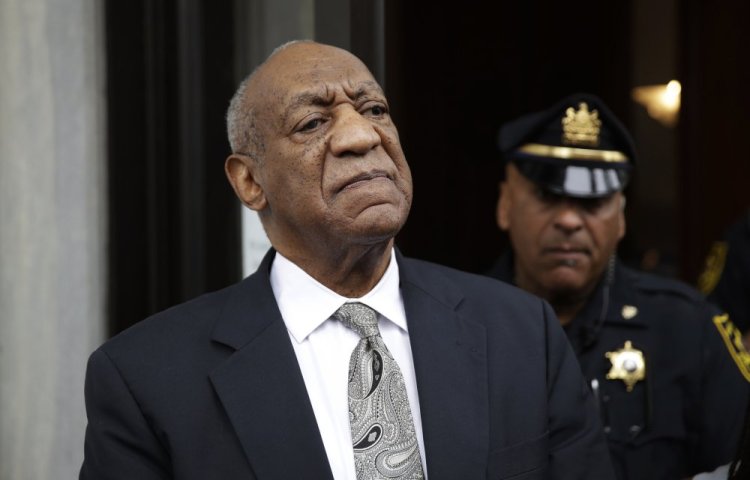NORRISTOWN, Pa. – The judge who presided over Bill Cosby’s sexual assault trial on Wednesday ordered the public release of the identities of the jurors who deadlocked in the case, but warned them not to divulge what other jurors said during deliberations.
Judge Steven O’Neill granted a request by a dozen media organizations, including The Associated Press and the major TV networks, to release the names. He said the jurors would first be contacted and given instructions on what they can and cannot say if they talk to reporters.
The judge declared a mistrial Saturday after the jury deliberated for 52 hours without a verdict. Prosecutors plan to retry the 79-year-old entertainer on charges he drugged and molested a woman at his suburban Philadelphia home in 2004. Cosby said the encounter with Andrea Constand was consensual.
Lawyers for news outlets had argued that jurors’ names should be public to ensure transparency in the judicial process. Prosecutors and defense lawyers had argued they should remain secret, saying releasing them would make it more difficult to select a jury in Cosby’s second trial.
O’Neill cited the media’s First Amendment rights and Supreme Court precedent in ordering the release of the names. But he forbade jurors from talking about what other members of the jury said in the deliberating room or from revealing any votes cast in the case.
“Any disclosure of what was said and done during deliberations in this case would give a chilling effect upon the future jurors in this case and their ability to deliberate freely,” he wrote. “Further, future jurors will be reluctant to speak up or to say what they think when deliberating if they fear that what they say during deliberations will not be kept secret.”
The judge plans to hold Cosby’s second trial in the next four months.
He ruled one day after a hearing at which the media outlets argued that jurors should be free to discuss their backgrounds, the sequestration process and their individual views, even if they do not disclose the jury split or other jurors’ comments.
“This is a critical part of the justice system,” lawyer Eli Segal argued. “We are entitled to them.”
The jury was selected from the Pittsburgh area and spent two weeks sequestered 300 miles from home.
The AP does not typically identify people who say they are victims of sexual assault unless they grant permission, which Constand has done.
Send questions/comments to the editors.



Comments are no longer available on this story